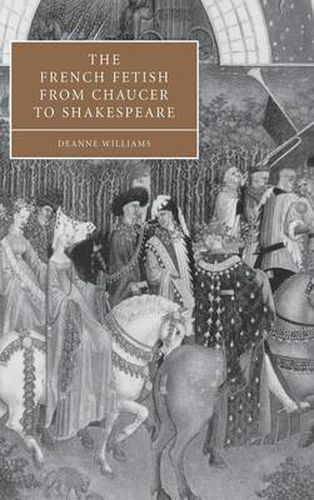Readings Newsletter
Become a Readings Member to make your shopping experience even easier.
Sign in or sign up for free!
You’re not far away from qualifying for FREE standard shipping within Australia
You’ve qualified for FREE standard shipping within Australia
The cart is loading…






What was the impact of the Norman Conquest on the culture of medieval and early modern England? Deanne Williams answers this question by contending that not only French language and literature, but the idea of Frenchness itself, produced England’s literary and cultural identity. Examining a variety of English representations of, and responses to, France and ‘the French’ in the work of Chaucer, Caxton, Skelton, Shakespeare and others, this book shows how English literature emerged out of a simultaneous engagement with, and resistance to, the pervasive presence of French language and culture in England that was the legacy of the Norman Conquest. Drawing upon current theories of gender and postcoloniality, this book revises traditional notions of English literary history by inserting France as a primary element in English self-fashioning, from Chaucer’s Prioress to Shakespeare’s Henry V.
$9.00 standard shipping within Australia
FREE standard shipping within Australia for orders over $100.00
Express & International shipping calculated at checkout
What was the impact of the Norman Conquest on the culture of medieval and early modern England? Deanne Williams answers this question by contending that not only French language and literature, but the idea of Frenchness itself, produced England’s literary and cultural identity. Examining a variety of English representations of, and responses to, France and ‘the French’ in the work of Chaucer, Caxton, Skelton, Shakespeare and others, this book shows how English literature emerged out of a simultaneous engagement with, and resistance to, the pervasive presence of French language and culture in England that was the legacy of the Norman Conquest. Drawing upon current theories of gender and postcoloniality, this book revises traditional notions of English literary history by inserting France as a primary element in English self-fashioning, from Chaucer’s Prioress to Shakespeare’s Henry V.